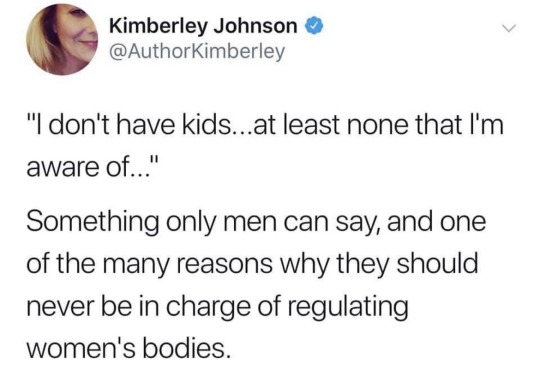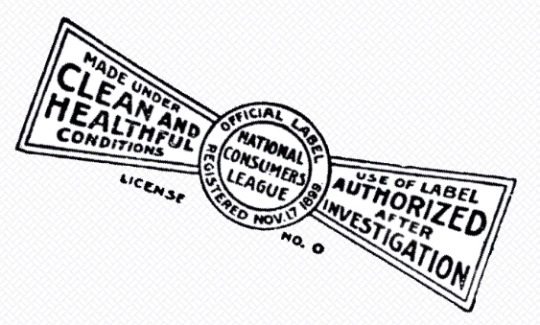#REGULATION
Explore tagged Tumblr posts
Text
RFK, Jr., Once Poisoned by Mercury, Is Silent as EPA Weakens Rules against It
RFK, Jr. fought mercury pollution for years, but he is now in an administration that wants to make it easier for industries to dump it into the air and water
CLIMATEWIRE | The last time President Donald Trump tried to roll back a mercury regulation, he faced a high-profile opponent: Robert F. Kennedy Jr.
Kennedy railed against EPA at an August 2017 public hearing for going along with the Trump administration’s demands to repeal wastewater limits. He warned that allowing more power plant pollution to enter waterways would poison people through mercury-contaminated fish — a problem he experienced personally after a period of eating tuna.
"It is really troublesome for those of us who will suffer from your irresponsibility," Kennedy said at the time. "The law says the waterways of this country, the fisheries of this country, belong to the people."
Eight years later, Kennedy has been silent as the Trump administration is again rolling back those same mercury regulations, along with at least a dozen other pollution controls announced last week in what EPA Administrator Lee Zeldin has called the agency's "biggest deregulatory action in U.S. history."
214 notes
·
View notes
Text
Besides, she thought as she watched Wazzer drink, you only thought the world would be better if it was run by women if you didn't actually know many women. Or old women, at least. Take the whole thing about the dimity scarves. Women had to cover their hair on Fridays, but there was nothing about this in the Book, which was pretty dar--pretty damn rigorous about most things. It was done because it had always been done that way. And if you forgot, the old women got you. They could practically see through walls. [...]
Polly had forgotten her dimity scarf. She did wear it at home on Fridays, for no other reason than that it was easier than not doing so. She vowed that, if she ever got back, she'd never do it again.
Terry Pratchett, Monstrous Regiment
#polly perks#wazzer#monstrous regiment#discworld#terry pratchett#women#gender#old women#better world#power#control#regulation#tradition#dress code#religion#the book#leaving home#growing up#resistance#the way things are#never again#dimity scarves
308 notes
·
View notes
Text
"born to live"
darling, you were never born to die...you were born to live. you were born to feel the air splurge through your lungs, to feel the sunlight warming your back, to hear the birds sing early in the morning. may these little joys coat your existence akin to a warm blanket. may they keep your heart beating. never lose the childlike wonder locked in your core, too beautiful a thing it is to let go of.
#writing#creative writing#poem#poetry#creative inspiration#dead poets society#society#authenticity#self love#self care#self improvement#self image#inspiration#inspiring words#inspiring#creative process#writers on tumblr#writeblr#writerscommunity#writers#writers and poets#limiting beliefs#trust yourself#identity#writing community#mind#self regulation#regulation#soul#born to live
274 notes
·
View notes
Text
No fucking duh, of course people are getting concerned over the economy. With chaotic tarrif policies and practices, plus oligarchs in power stripping America for parts people aren't secure in the economy. No one wants to say the words recession or crash cause it might cause one, meanwhile Republicans will cut social security to line Elon Musk's and Trump's pockets and they will cut social programs like they always want to do.
#politics#the left#leftism#communism#us politics#eat the rich#tax the rich#progressive#corporate greed#culture#elon musk#trump administration#us government#fuck trump#donald trump#jd vance#the economy is in shambles#economy news#economy and trade#banking#taxation#government#regulation#stock market#food prices#groceries#american politics#Trump took egg#trump tariffs#trade war
38 notes
·
View notes
Text
Don't know if I speak for everyone in favor of deregulation, but the problem as I see it, is not "Safety is too expensive." It's "government regulatory agencies have too little accountability."
To my knowledge there's nothing to prevent or even deter say, the FDA from deciding the occasional entire bug in a pickle jar is just fine when it's Mt. Olive because it's just "trace amounts" relative to the batch, but then shutting down a farmer's market because they haven't exterminated all roaches in a 200 mile area from where they do their canning and one might get in.
31 notes
·
View notes
Text
Just 57 companies and nation states were responsible for generating 80% of the world's CO₂ emissions from fossil fuels and cement over the last seven years, according to a new report released by the thinktank InfluenceMap. This finding suggests that net zero targets set by the Paris climate change agreement in 2015 are yet to make a significant impact on fossil fuel production. The report uses the Carbon Majors database, established in 2013 by Richard Heede of the Climate Accountability Institute, to provide fossil fuel production data from 122 of the world's largest oil, gas, coal and cement producers.
Continue Reading.
184 notes
·
View notes
Text

Feb 14 (Reuters) - The rise of "pig butchering" scams and the increasing use of generative artificial intelligence likely lifted revenues from crypto scams to a record high in 2024, according to blockchain analytics firm Chainalysis.
Revenue from pig butchering scams, where perpetrators cultivate relationships with individuals and convince them to participate in fraudulent schemes, increased nearly 40% in 2024 from the previous year, the firm estimated in a report published on Thursday.
Revenue in 2024 from crypto scams was at least $9.9 billion, although the figure could rise to a record high of $12.4 billion once more data becomes available, it said.
"Crypto fraud and scams have continued to increase in sophistication," Chainalysis researchers said.
The company pointed to marketplaces that support pig butchering operations and the use of GenAI as factors making it easier and cheaper for scammers to expand operations.
https://www.reuters.com/technology/crypto-scams-likely-set-new-record-2024-helped-by-ai-chainalysis-says-2025-02-14/
#crypto#reuters#bitcoin#ethereum#money#finance#economy#ai#artificial intelligence#politics#political#us politics#news#cash#digital currency#bitlocker#digita wallet#crypto exchange#blockchain#financial#economic#economics#non-fungible token#NFT#stablecoin#virtual currency#bitcoin mining#government#regulation#scams
14 notes
·
View notes
Text
How too calmly de-escalate a stressfull encounter with a rude person
-take a deep breath
-expell the air from your lungs at Mach 7/2401m/s
-the air will be traveling at such speed as too heat up from atmospheric friction, bakeing the antagonist
-the speed of exhalation will send them flying, unless they have mastered the self defence techniques of the Relativistic Monk
-unless you eat a lot of protein, this will also likely expel your lungs, diaphragm, heart, and arteries at your antagonist, shocking them.
-this may break your sternum, and fire out your ribs like a rail gun, similar to the Scottish incident
-your opponent will now be lieing broken, burnt, blasted about 200 metres away from you on the over side of the parking lot, covered in vicsera
-take a deep breath
-walk away
23 notes
·
View notes
Text
Big Tech and “captive audience venues”

I'm on a 20+ city book tour for my new novel PICKS AND SHOVELS. Catch me in CHICAGO with PETER SAGAL next WEDNESDAY (Apr 2), and in BLOOMINGTON next FRIDAY (Apr 4). More tour dates here.

Enshittification is what you get when tech companies, run by the common-or-garden mediocre sociopaths who end up at the top of most businesses, are unshackled from any consequence for indulging their worst, greediest impulses:
https://pluralistic.net/2025/01/20/capitalist-unrealism/#praxis
The reason Facebook was once a nice place to hang out and talk with your friends and isn't anymore is that Mark Zuckerberg is no longer disciplined by competitors like Instagram (which he bought) nor by regulators (whom he captured), nor by interoperable tech like ad-blockers and alternative clients (which he uses IP law to destroy) nor by his own workforce (who have become disposable thanks to workforce supply catching up with demand). It used to be that Mark Zuckerberg couldn't really move the enshittification lever in the Facebook C-suite because these disciplining forces gummed it up. He had to worry about losing users, or about users installing alternative technology, or about regulators hitting him hard enough to hurt, or about workplace revolts. Now, he doesn't have to worry about these things, so he's indulging the impulses that he's had since the earliest days in his Harvard dorm, when he was a mere larval incel cooking up an online service to help him rate the fuckability of his female classmates.
When we had defenses, Mark Zuckerberg had to respect them. Now that we're defenseless, he's shameless. He's insatiable. He will devour us to the marrow.
When I'm explaining enshittification to normies, I often make comparisons to other places where you can't escape like airports and sports stadiums: "Facebook can afford to abuse you once they have you locked for the same reason that water costs $7/bottle on the other side of the airport TSA checkpoint." It's an extremely apt comparison, as you can verify for yourself by reading "Shakedown at the Snack Counter: The Case for Street Pricing," a new report from the Groundwork Collective:
https://groundworkcollaborative.org/work/street-pricing/
"Shakedown" makes the point that – as is the case with tech giants – sports stadiums and airports are creatures of vast public subsidy. If this seems counterintuitive, try Mariana Mazzucato's Entrepreneurial State, which lists all the ways in which the tech revolution represents a privatization of publicly funded research, as with the iPhone, whose semiconductors, internet connection, voice assistant technology, touchscreen and other components all count the public as a key investor:
https://www.pbs.org/newshour/economy/the-entrepreneurial-state-appl
And, as with airports and sports stadiums, the proprietors of the iPhone business are able to reap this gigantic public subsidy without taking on any public duties. Regulators that could impose some kind of public service obligations as quid pro quo for using public funds are AWOL, or worse, captured and complicit in the ongoing, publicly financed ripoff:
https://pluralistic.net/2024/08/15/private-law/#thirty-percent-vig
Airport, stadiums and tech platforms are all walled gardens – roach motels that are hard to escape once they've been entered. Thus the scorching prices of stadium and airport food, and the 30% transaction fees imposed by Apple and Google on app revenues (this is 1,000% higher than the average fees charged by the rest of the payment processing industry!), the 51% fees extracted by Google/Meta from advertisers and publishers (compare with the historical average of 15%), and the 45-51% that Amazon takes out of every dollar earned by its platform sellers. Once you're locked in, they can turn the screws, either by gouging buyers directly, or by gouging sellers, who pass those additional costs onto buyers.
Groundwork has a proposal to address this in physical settings: regulation. Specifically, a "street pricing" regulation that keeps the charges for food and drinks within these walled gardens to prices comparable to those on the outside. They note that these regulations enjoy wide, bipartisan support. 76% of Republicans support a regulation that can only be described as "price controls," two words that normally trigger head-explosions in the right.
How is it that such a commanding majority of Republicans can get behind government price controls? Simple: it's obvious that when a company no longer faces market discipline – when they're the only game in town (or on the other side of the TSA checkpoint) – that government discipline has to fill the vacuum, and if it doesn't, you will get mercilessly screwed.
This is where enshittification – a form of monopolistic decay unique to the tech sector – departs from everyday monopoly abuse in other sectors, like aviation and league sports. Tech has an in-built flexibility, the inescapable property of "interoperability" that comes standard with every digital system thanks to the universal nature of computers themselves.
Interoperable technologies let you hack Instagram to restore it to the state of privacy- and attention-respecting glory that made it a success in the first place:
https://pluralistic.net/2023/02/05/battery-vampire/#drained
They let you monitor Facebook's failures to uphold its own promises about not profiting from paid political disinformation:
https://pluralistic.net/2021/08/06/get-you-coming-and-going/#potemkin-research-program
They let you claw back control over how Facebook's feeds are constructed:
https://pluralistic.net/2021/10/08/unfollow-everything/#shut-the-zuck-up
They let Apple customers maintain their privacy, even if they have the temerity to be friends with Android users:
https://pluralistic.net/2023/12/07/blue-bubbles-for-all/#never-underestimate-the-determination-of-a-kid-who-is-time-rich-and-cash-poor
They let shoppers use Amazon to order from local mom-and-pop stores:
https://pluralistic.net/2022/07/10/view-a-sku/
They even let you destroy the net worth – and power – of Elon Musk:
https://pluralistic.net/2025/03/08/turnabout/#is-fair-play
Interoperability creates a unique, easily administered source of discipline over tech bosses that just isn't available as a means of countering the ripoffs we see elsewhere, including in sports stadiums and airports. That means that, far from being harder to fix than other disgusting scams in our society, tech is easier to fix. All that stands in the way is the IP laws that criminalize the kind of reverse-engineering work that allow the users of technology to have the final say over how the devices and services they rely on work:
https://locusmag.com/2020/09/cory-doctorow-ip/
Those IP laws were spread around the world by the US Trade Representative, who insisted that every country that wanted to export its products to the US without punitive tariffs must pass laws protecting the rent-extracting scams of US tech giants. With those tariff promises now in tatters, there's never been a better time for the rest of the world to jettison those Big Tech-protecting laws:
https://pluralistic.net/2025/01/15/beauty-eh/#its-the-only-war-the-yankees-lost-except-for-vietnam-and-also-the-alamo-and-the-bay-of-ham

If you'd like an essay-formatted version of this post to read or share, here's a link to it on pluralistic.net, my surveillance-free, ad-free, tracker-free blog:
https://pluralistic.net/2025/03/28/street-pricing/#sportball-analogies

Image: Daniel Brody (modified) https://commons.wikimedia.org/wiki/File:South-Station-snack-bar-1970.jpg
CC BY-SA 4.0 https://creativecommons.org/licenses/by-sa/4.0/deed.en
#pluralistic#street pricing#captive audience venues#groundwork collective#enshittification#we dont have to care were the phone company#regulation#competition#privatized gains socialized losses#sportsball#aviation#travel#monopolism#interop#interoperability#comcom#competitive compatibility#felony contempt of business model#adversarial interoperability
147 notes
·
View notes
Text

#abortion#pro choice#pro life#reality#children#roe v. wave#roe vs. wade#men#women#birthing#regulation#real shit#true shit#united states of america#USA#united states#war on women#the reason#reasons#supreme court#abortion laws#abortion ban#current reality#reality is#in real life#twitter#tweet#she said what she said#no but seriously#no but for real
200 notes
·
View notes
Text
"you owe yourself"
don't you dare bring down past versions of yourself. presenting themselves as stepping stones which bring you a bit closer to yourself each single day, they are the only reason you still stand. it is not by chance that grown trees shade young seedlings with their lush crowns, rescuing them from the burning Sun. one of the primary things you owe yourself is to take care of your past versions. when sadness weaves around you like a cloak, when you wish to bring yourself down for past mistakes, when you lay awake at night contemplating each single action you have taken...do not indulge. speak patiently with the version of yourself which yearns for your comfort. have the strength to choose the option of overflowing with love and compassion. it is one of the the most loving acts you can perform towards yourself.
#writing#creative writing#poem#poetry#creative inspiration#dead poets society#authenticity#self love#self care#self improvement#self image#inspiration#inspiring words#inspiring#creative process#writers on tumblr#writeblr#writerscommunity#writers#writers and poets#limiting beliefs#identity#writing community#self regulation#regulation#soul#happy#happiness#joy#proactive
43 notes
·
View notes
Note
on: "there is no ethical consumption under capitalism," would you agree to the corollary that: "and there CAN be no ethical consumption under capitalism" or is there some meliorist path towards ethical consumption under capitalism
As a social democrat, I'm very much a believer in "meliorist" solutions and deeply skeptical of the undistributed middle. It is a matter of historical fact that capitalism can function in a number of ethical "registers," and anyone who tells you otherwise is trying to sucker you into pseudo-revolutionary defeatism.
There is a real difference between completely unrestrained dark Satanic mills powered by child labor and slave cotton and a fully-realized social democratic mixed economy, complete with tripartite bargaining and co-determination, economic planning organized through a jobs state and decommodified/nationalized economic sectors including a social democratic welfare state, and a robust regulatory state that can enforce safety and environmental and labor standards at home and abroad - and there are many different points along that spectrum.

My main critique of the whole "ethical consumption under capitalism" thing is that the variant of it that stresses individual consumer behavior is a total fantasy.

It is simply impossible to exert pressure on capitalist systems on your own, or even through ad hoc or single-issue boycott efforts. You need social movements like the National Consumers League that combine mass mobilization with permanent infrastructure, those movements need to be in coalition with the labor movement and civil rights movements, all of them need a regulatory state with the capacity to enforce its will on corporations - and that state needs them as countervailing forces against corporate lobbyists.
youtube
#history#historical analysis#economic policy#political economy#regulation#regulatory state#ethical consumption under capitalism#economic history#social democracy#mixed economy#co-determination#boycotts
62 notes
·
View notes
Text
Ben Breaux reports on his survey of 47 other nonspeaking and minimally speaking autistic people , about using iPads for regulation & communication.
#Ben Breaux#high tech aac#technology#regulation#our sensory worlds#music#iPads#survey#assumptions#dysregulation#AAC
7 notes
·
View notes
Text
One in 10 premature births in the United States have been linked to pregnant women being exposed to chemicals in extremely common plastic products, a large study said on Wednesday. The chemicals, called phthalates, are used to soften plastic and can be found in thousands of consumer items including plastic containers and wrapping, beauty care products and toys.
Continue Reading.
87 notes
·
View notes